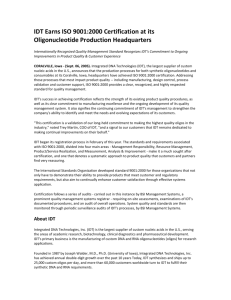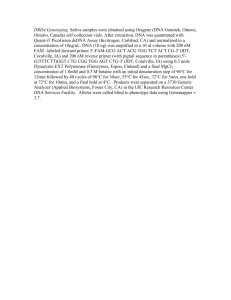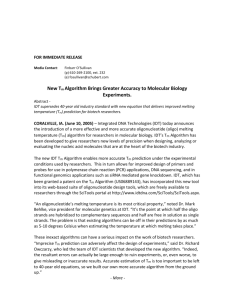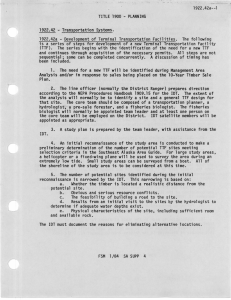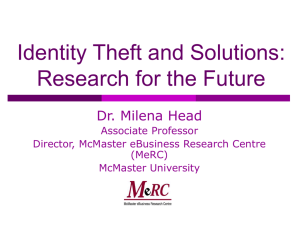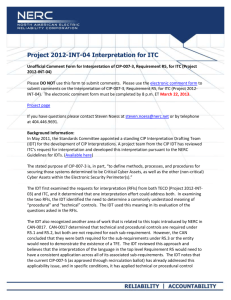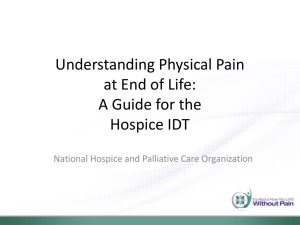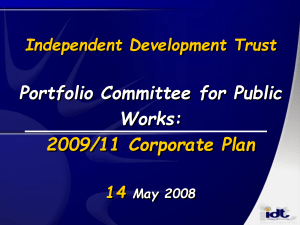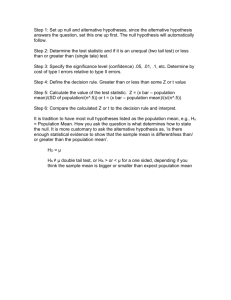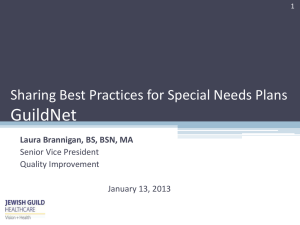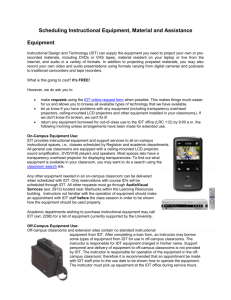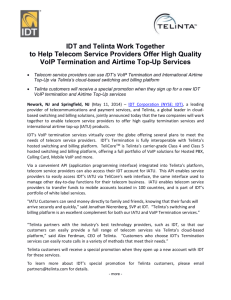SEP6
advertisement
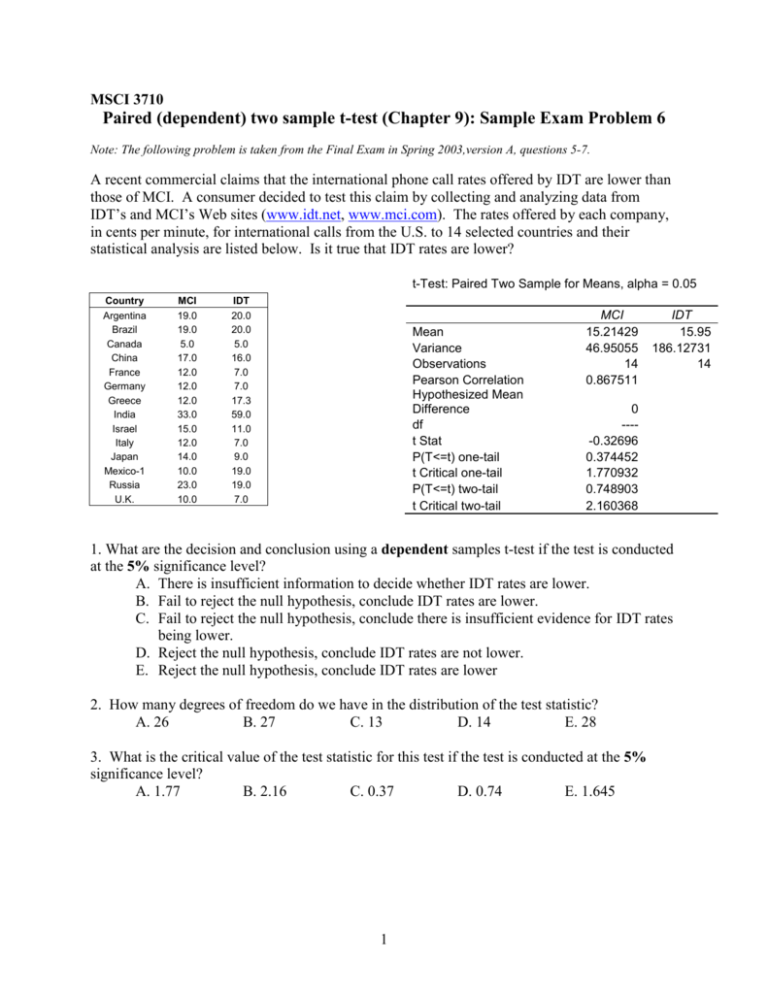
MSCI 3710 Paired (dependent) two sample t-test (Chapter 9): Sample Exam Problem 6 Note: The following problem is taken from the Final Exam in Spring 2003,version A, questions 5-7. A recent commercial claims that the international phone call rates offered by IDT are lower than those of MCI. A consumer decided to test this claim by collecting and analyzing data from IDT’s and MCI’s Web sites (www.idt.net, www.mci.com). The rates offered by each company, in cents per minute, for international calls from the U.S. to 14 selected countries and their statistical analysis are listed below. Is it true that IDT rates are lower? t-Test: Paired Two Sample for Means, alpha = 0.05 Country Argentina Brazil Canada China France Germany Greece India Israel Italy Japan Mexico-1 Russia U.K. MCI 19.0 19.0 5.0 17.0 12.0 12.0 12.0 33.0 15.0 12.0 14.0 10.0 23.0 10.0 IDT 20.0 20.0 5.0 16.0 7.0 7.0 17.3 59.0 11.0 7.0 9.0 19.0 19.0 7.0 Mean Variance Observations Pearson Correlation Hypothesized Mean Difference df t Stat P(T<=t) one-tail t Critical one-tail P(T<=t) two-tail t Critical two-tail MCI 15.21429 46.95055 14 0.867511 IDT 15.95 186.12731 14 0 ----0.32696 0.374452 1.770932 0.748903 2.160368 1. What are the decision and conclusion using a dependent samples t-test if the test is conducted at the 5% significance level? A. There is insufficient information to decide whether IDT rates are lower. B. Fail to reject the null hypothesis, conclude IDT rates are lower. C. Fail to reject the null hypothesis, conclude there is insufficient evidence for IDT rates being lower. D. Reject the null hypothesis, conclude IDT rates are not lower. E. Reject the null hypothesis, conclude IDT rates are lower 2. How many degrees of freedom do we have in the distribution of the test statistic? A. 26 B. 27 C. 13 D. 14 E. 28 3. What is the critical value of the test statistic for this test if the test is conducted at the 5% significance level? A. 1.77 B. 2.16 C. 0.37 D. 0.74 E. 1.645 1
